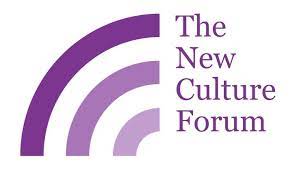The BBC and mainstream media’s award-winning entertainment shows have been devastated by woke culture. Can GB News expand and take their place?
A new TV news channel founded by media executives Andrew Cole and Mark Schneider is set to air early next year, challenging the dominance of the mainstream media.
Andrew Neil has confirmed his position as chairman of the organisation and its main presenter, with at least 120 positions open and hundreds of journalists being approached.
GB News will feature 6,500 hours of content a year and will broadcast seven days a week.

The channel will be primarily advertiser-funded and be available on Freeview, Virgin and as part of the Sky channel as well as all digital platforms.
The BBC and other mainstream media are pandering to young people – a demographic that hasn’t grown up with the BBC and has moved beyond its model, preferring other options like Netflix, Amazon and YouTube.
The executives at the mainstream media seemingly haven’t got the message. As a result, their entertainment has been dominated by left-wing issues/topics, leading to record-low ratings and viewership.
Cole/Schneider have a great opportunity: by creating new shows and bringing in new people, they can promote British values to a larger audience. This would directly challenge the left-wing / London-centric values the BBC espouses, therefore better representing the country as a whole.
For a start, Cole/Schneider could reach out to think tank The New Culture Forum, run by Peter Whittle, a former deputy leader of UKIP.

The NCF and its shows (So What You’re Saying Is, Counterculture and Newspeak) range from lengthy 1-1 interviews to group discussions (similar to This Week). Through this, they explore ideas related to promoting British values in the culture war.
This would allow new ideas to be heard from people the mainstream media ignore, allowing the British public to make up its own mind. Newsnight would finally have some real competition.
Comedy shows such as Have I Got News For You and Mock the Week almost exclusively focus on areas like Brexit, Trump or the Conservatives, alienating large swathes of the population.

Cole/Schneider could persuade notable comics such as Geoff Norcott, Andrew Doyle and Michael McIntyre to move to the channel and give them their own stand-up shows. This would make comedy more appealing to people.
Also, by bringing on less well-known comedians like Konstantin Kisin and Francis Foster (Triggernometry on YouTube) and musical comedian Dominic Frisby, they would open themselves up to new viewers.

David Starkey’s cancellation at the hands of the Twitter mob has most likely ended his career at the BBC, but as the BBC shut Starkey out, Cole and Schneider can welcome him into their organisation.
Mr Cole and Mr Schneider could welcome other talented people not appreciated by the BBC, including figures like Michael Portillo, Simon Heffer and many others.
There are many other sectors that Cole/Schneider could move into if they have any wish to expand further, including areas like radio and podcasts.
To create a sustainable alternative media source that can rival the BBC and ITV duopoly, Mr Cole and Mr Schneider will need to expand their vision in the next few years. This will give viewers even more reason to cancel their TV licence fees and move over, in the long term, to new media outlets.



